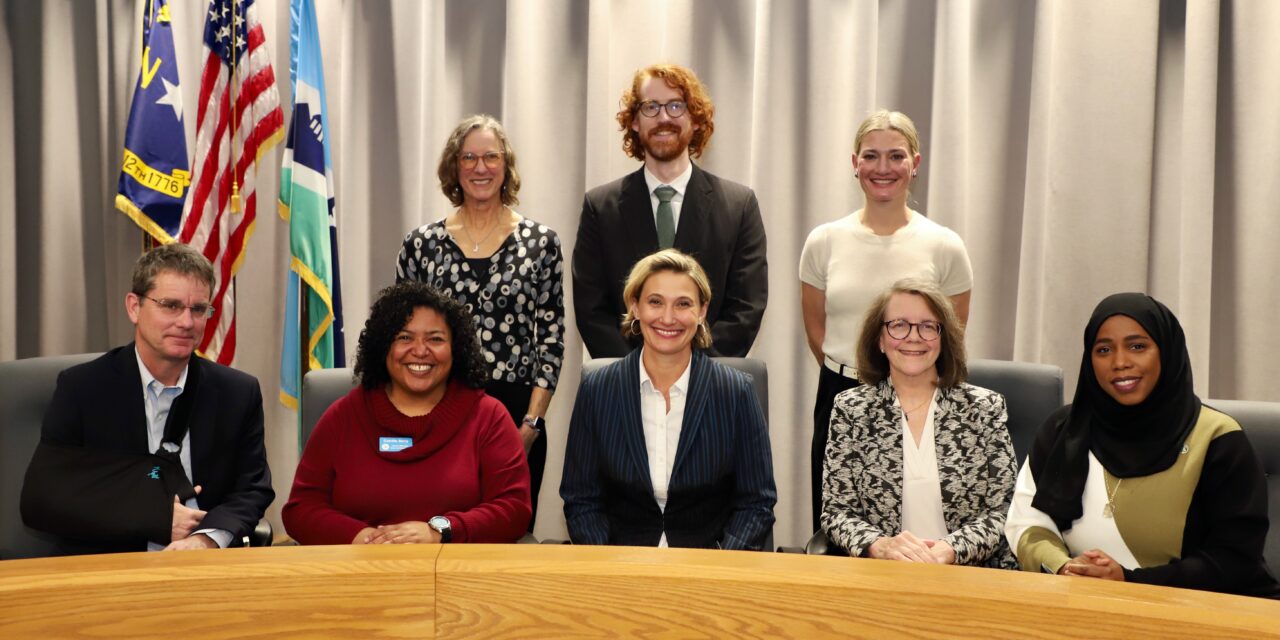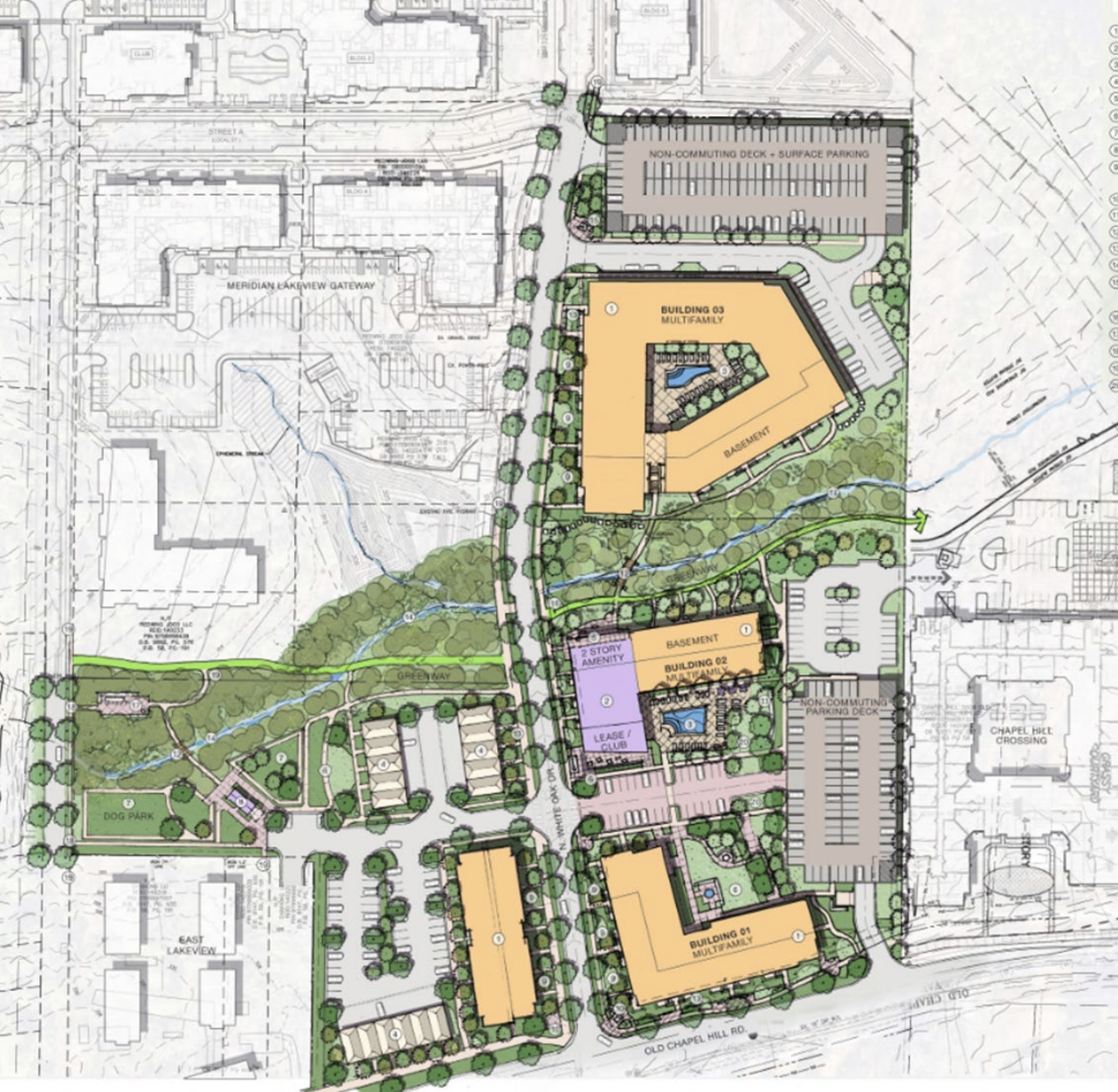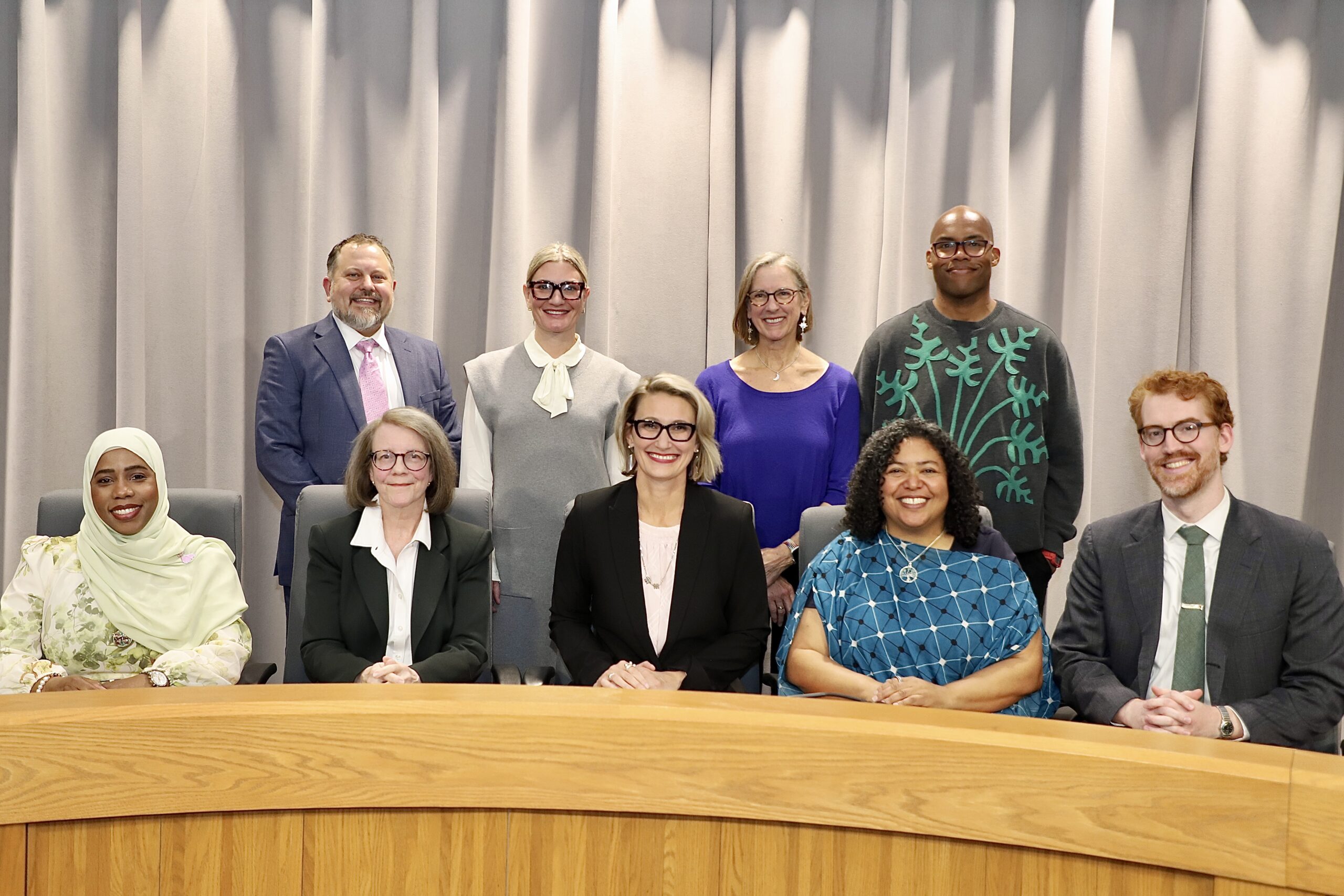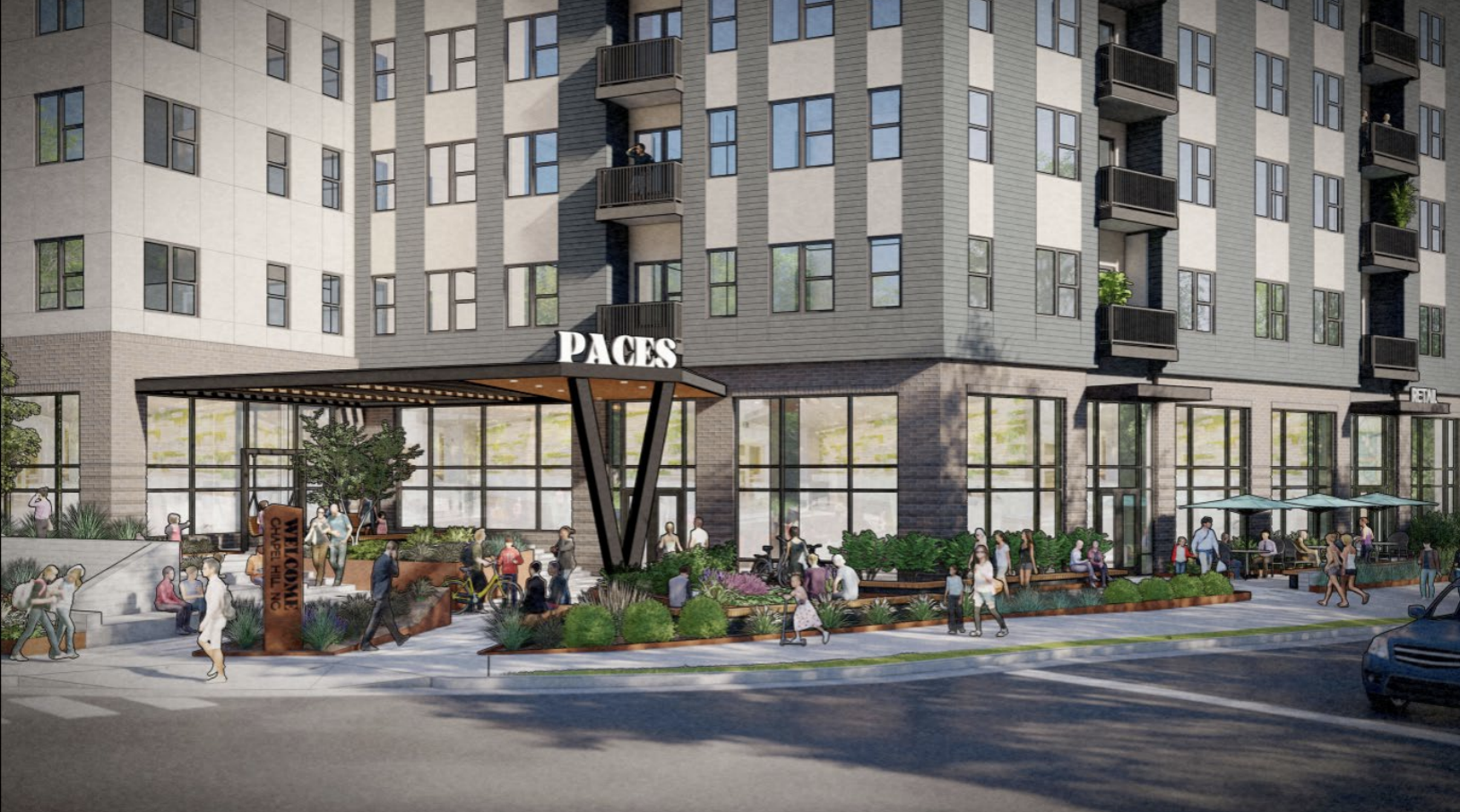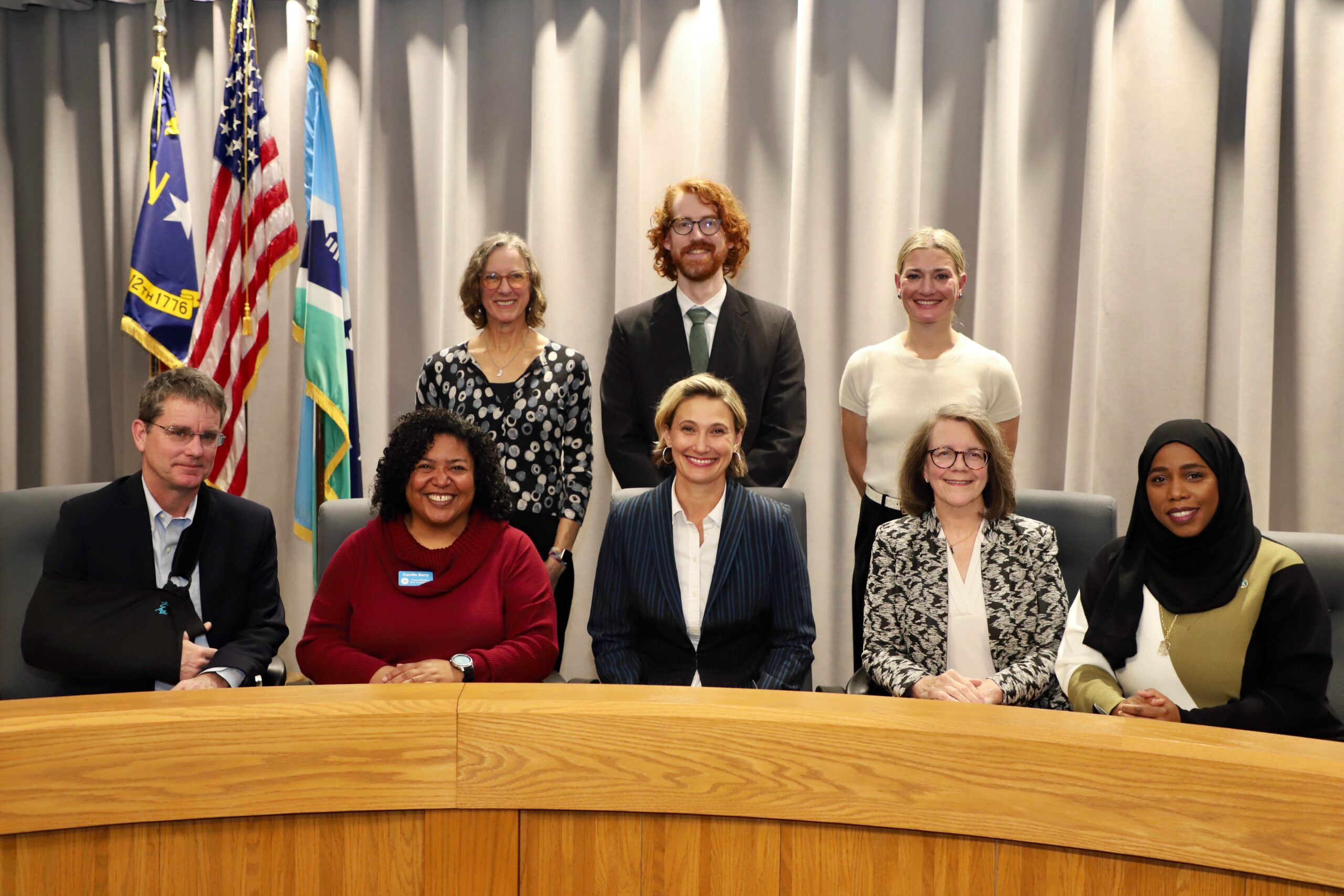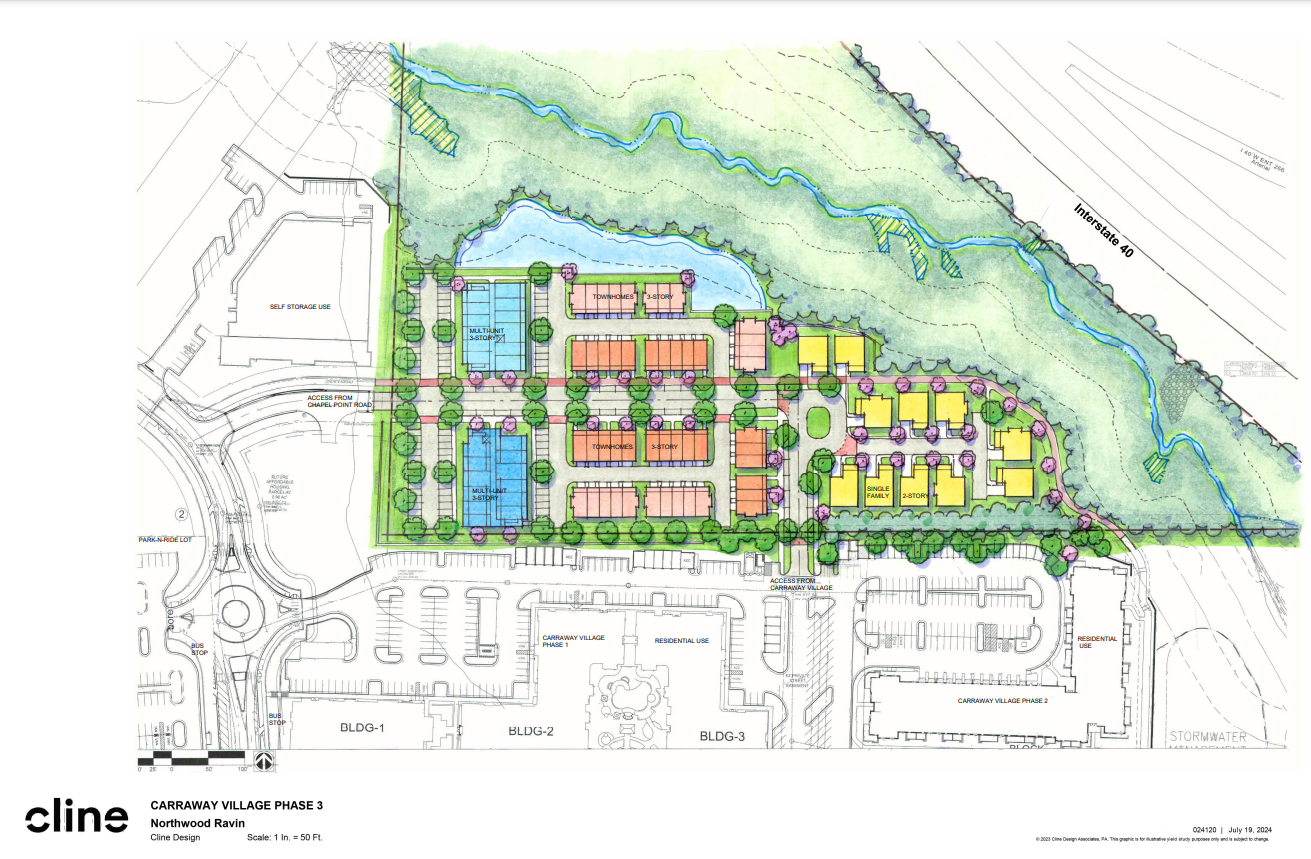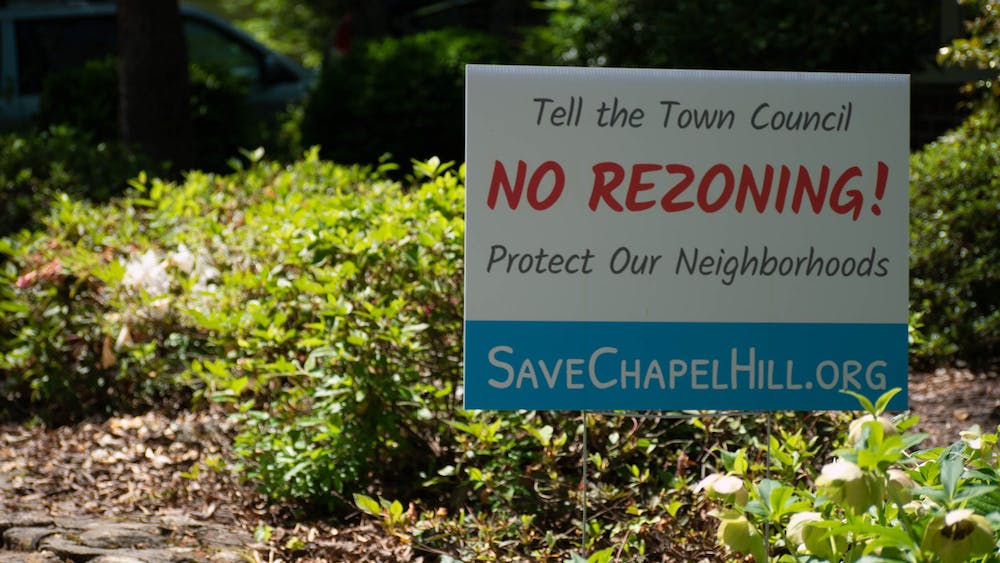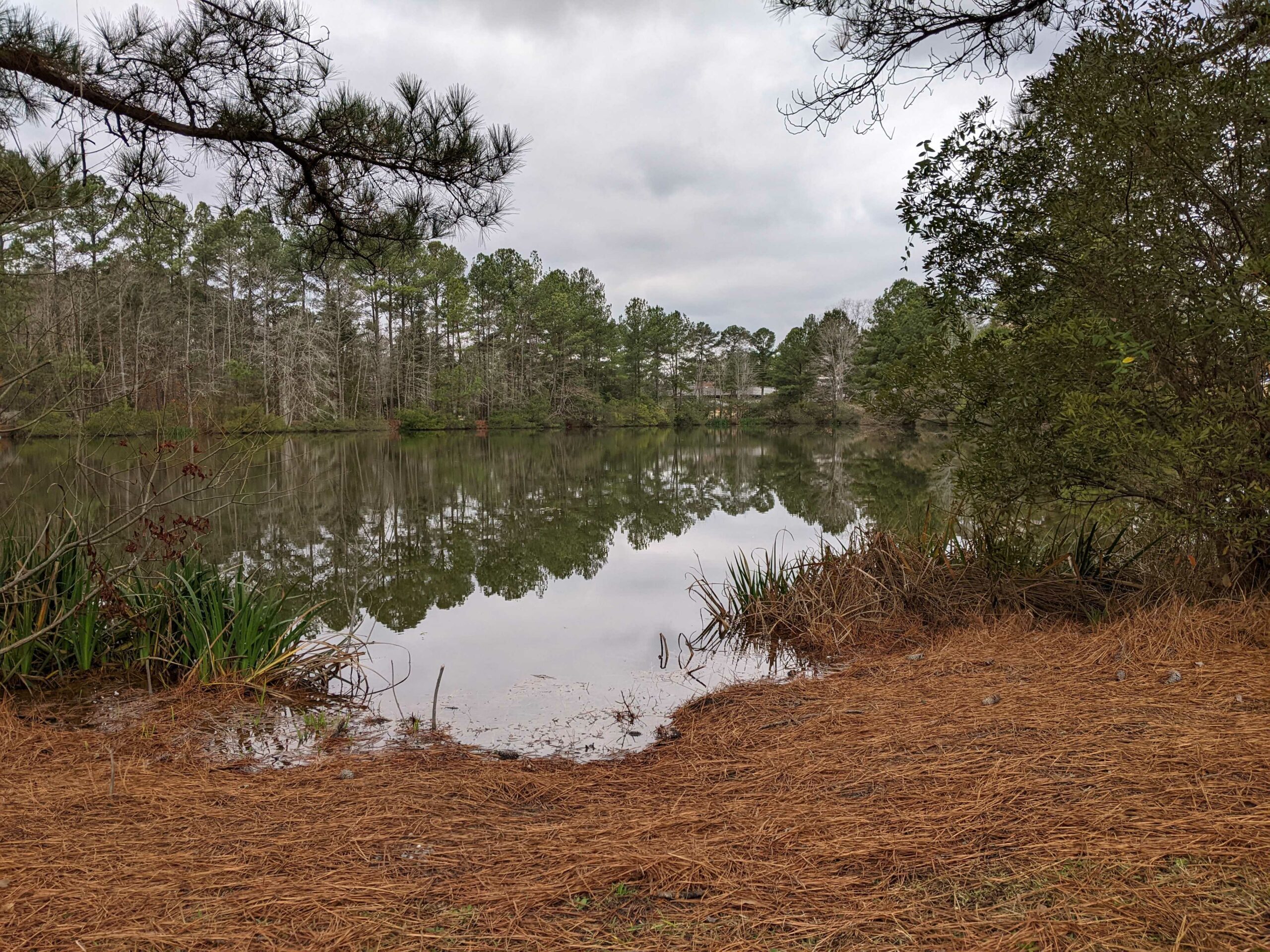The Chapel Hill Town Council recently reviewed a potential feasibility study for an everywhere-to-everywhere greenway network. As part of Chapel Hill’s Complete Communities Strategy, the connected greenways envision making bike and pedestrian travel throughout town possible.
The feasibility study, led by McAdams, aims to develop an action plan for designing and constructing the network, said McAdams Principal-in-Charge Iona Thomas.
“The town has done this amazing job of envisioning what the community wants to look like in the future, this connected community,” Thomas said at the Feb. 12 meeting. “This community that is safe, where you can make a trip without a car, separated from vehicle traffic to a daily destination, and you want that for your whole community.”
The planning effort earned $1 million of federal grant funding in 2023. Thomas described the two-year study as a way to bridge the planning and “cutting the ribbon” stages of a project. She said it will help identify where Chapel Hill is going for both bike and pedestrian travel — and in terms of transit and land use, allowing for the development of connections consistent with the town’s vision. The feasibility plan would also help provide reliable cost estimates for the projects and well-position the team to apply for federal funding and grants to complete them – as well as ensure projects are both buildable and viable.
“The planning documents are like big, fat lines on the map, and sometimes when we draw those lines, they go over parcel boundaries and over streams and over across roads,” Thomas said. “And these barriers that if you’re just drawing a line, it’s easy and the consequences are low. But when it comes to getting a project on the ground, its consequences become very very real.”
Chapel Hill Mayor Jess Anderson emphasized the need for the plan to drive the creation of denser, middle-income housing along the greenways, and she said she is excited for the team to get started.
“This is actually the operationalizing of a huge part of our vision for the town,” Anderson said. “Thank you for being on the journey with us, and thank you staff for making it happen. It is so, so exciting, and I think it’s really transformational for Chapel Hill.”
With the everywhere-to-everywhere connectivity being a town priority, the mayor asked how the plan will engage communities who are opposed to the projects.
“We hear from the public, for example, that they don’t want us to allow a road to go through from one neighborhood to another,” Anderson said. “And we definitely hear that, but we also know that for the long-term health of our network, that might not be the best idea.”
Using the town’s Complete Communities framework as a guide, the McAdams Cultural Competence Advisor Mitchell Silver noted how public engagement efforts, like listening sessions and focus groups, will be a crucial aspect of the plan and for working through these concerns.
“If there’s a group that’s reluctant to see an easement or a path through those neighborhoods, to me, that may warrant a deeper conversation and talk about why, to actually hear what they’re saying,” Silver said. “Sometimes you hear it at face value, some people say ‘safety.’ Well, what does that mean?”
Silver stressed how building trust with the community through listening is the team’s primary goal when conducting community engagement efforts. To help ensure all voices are heard, he added how the study aims to address barriers that typically make it hard for people to participate. For example, providing language access and utilizing plain language.
Council Member Paris Miller-Foushee asked how the plan will include historically underserved communities. She said while there are some communities who do not want certain things, there are often others who have previously been denied them.
Silver said it will be important to host preliminary listening sessions before any official outreach begins, allowing anyone with a perspective to voice their concerns.
“Because we recognize that the harm is so deep that people cannot move forward because they’re still stuck in the past and they’re concerned about what you do may inflict more harm,” Silver said. “So it’s a delicate path moving forward. It takes intentional conversations.”
Silver said once people know they are heard, then you can develop an appropriate path forward.
To watch the full Chapel Hill Town Council meeting from Feb. 12, click here. The latest potential pieces to the network are being reviewed by the public now, and can be found on the town’s engagement website.
Chapelboro.com does not charge subscription fees, and you can directly support our efforts in local journalism here. Want more of what you see on Chapelboro? Let us bring free local news and community information to you by signing up for our newsletter.

